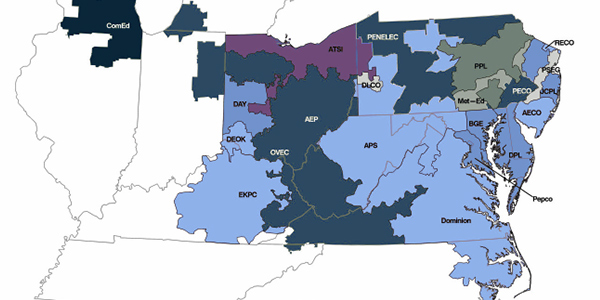By Christen Smith
Reduced uplift, plunging energy prices and shrinking net revenues punctuated a competitive first quarter in PJM’s energy market, the Independent Market Monitor said Thursday.
Load-weighted, average real-time LMPs declined 39% over the first three months of 2019, averaging $30.16/MWh. The Monitor’s analysis concludes that lower fuel costs explained 40% of the $19.29/MWh drop, while attributing the rest to decreased load, adjusted dispatch and smaller markups. Units operating near short-run marginal cost set the price in most instances, the Monitor said.
Both energy uplift charges and congestion costs tanked by more than 75%, while net revenues for all new units declined by double digits, including 65% for combustion turbine, 42% for combined cycle, 85% for coal plants, 37% for nuclear and 93% for diesel. Renewables likewise saw declines of 40% in onshore wind, 36% in offshore wind and 22% for solar. The Monitor said net revenue represents a “key” measure of market performance and investor incentive to support more generation.
“Energy net revenues are significantly affected by energy prices and fuel prices,” the Monitor said. “Energy prices were lower in the first three months of 2019 than in the first three months of 2018 as a result of lower gas prices in the east. Coal prices were slightly higher.”
The analysis determined local market structure was not competitive, however, because of “highly concentrated ownership of supply” that led to a failure of the three-pivotal-supplier test.
The Monitor recommended PJM include end-of-life projects in the FERC Order 1000 competitive process in order to boost market performance. He also encouraged PJM to reject temporary commitment exceptions for generators based on unenforced pipeline tariff terms that include “inferior transportation service procured by the generator.”
“The MMU observed instances when generators submit temporary parameter exceptions based on claimed pipeline constraints even though these constraints are based on the nature of the transportation service that the generator procured from the pipeline,” the Monitor wrote. “In some instances, generators requested temporary exceptions based on ratable take requirements stated in pipeline tariffs, even though the requirement is not enforced by the pipelines on a routine basis. If a unit were to be dispatched uneconomically using the inflexible parameters, the unit would receive make-whole payments based on these temporary exceptions.”




